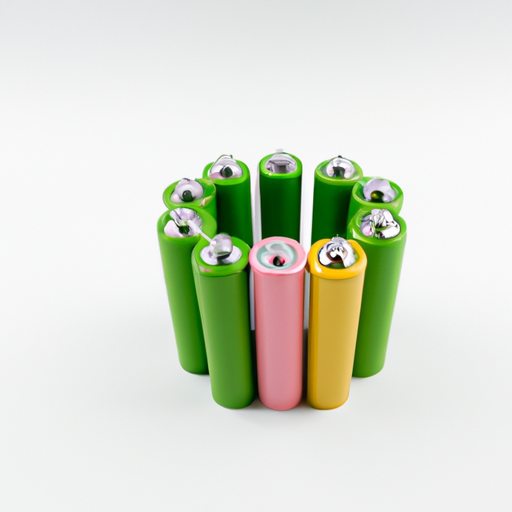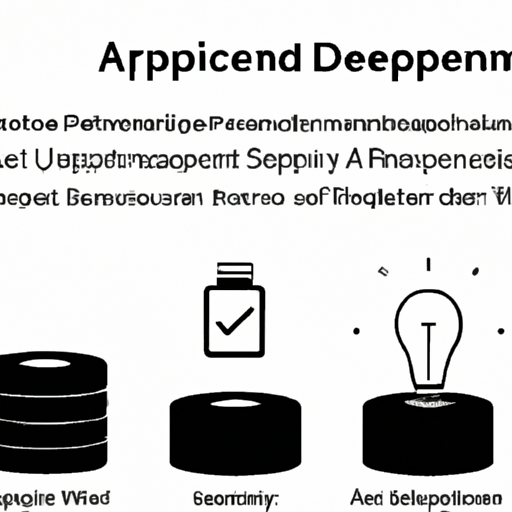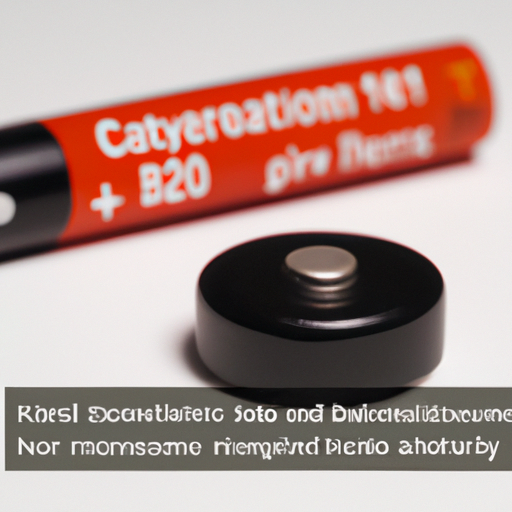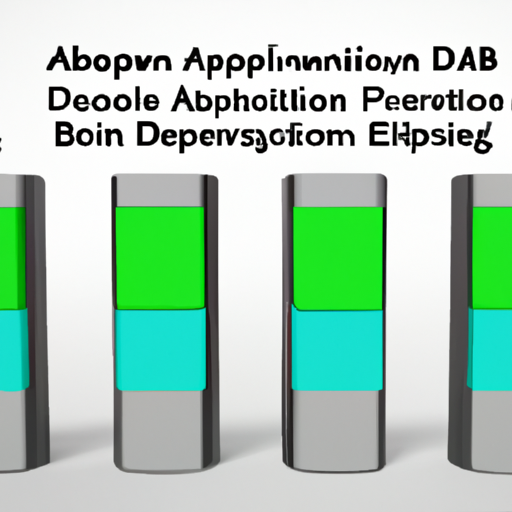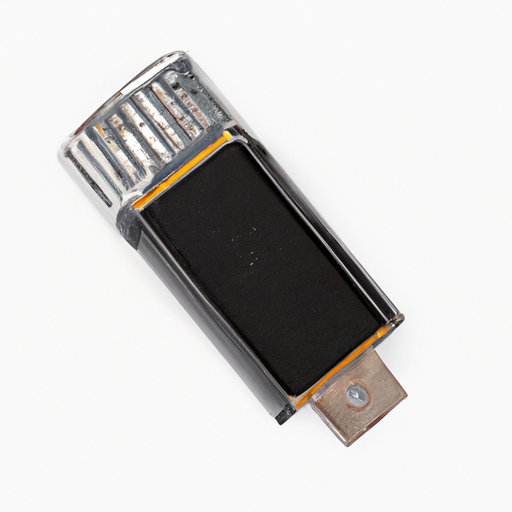Certainly! Below is a structured overview of 105 battery products, highlighting core functional technologies, articles, and application development cases. This list includes various types of batteries, their technologies, and applications across different sectors.
1. Lithium-Ion Batteries - **Core Technology**: Uses lithium ions to move from the anode to the cathode during discharge. - **Applications**: Electric vehicles (EVs), smartphones, laptops. - **Case Study**: Tesla's Gigafactory production of lithium-ion batteries for EVs.
2. Solid-State Batteries - **Core Technology**: Solid electrolyte instead of liquid, enhancing safety and energy density. - **Applications**: Future EVs, portable electronics. - **Case Study**: Toyota's development of solid-state batteries for next-gen vehicles.
3. Nickel-Metal Hydride (NiMH) Batteries - **Core Technology**: Uses nickel and hydrogen; known for high capacity and durability. - **Applications**: Hybrid vehicles, power tools. - **Case Study**: Honda's use of NiMH in their hybrid models.
4. Lead-Acid Batteries - **Core Technology**: Electrochemical reaction between lead and sulfuric acid. - **Applications**: Automotive starter batteries, uninterruptible power supplies (UPS). - **Case Study**: Use in traditional vehicles and backup power systems.
5. Lithium Iron Phosphate (LiFePO4) Batteries - **Core Technology**: A type of lithium battery known for thermal stability and safety. - **Applications**: Electric buses, energy storage systems. - **Case Study**: BYD's electric buses utilizing LiFePO4 technology.
6. Flow Batteries - **Core Technology**: Uses liquid electrolytes stored in external tanks. - **Applications**: Large-scale energy storage, renewable energy integration. - **Case Study**: Vanadium flow batteries for grid storage solutions.
7. Zinc-Air Batteries - **Core Technology**: Uses oxygen from the air as a cathode reactant. - **Applications**: Hearing aids, electric vehicles. - **Case Study**: Development of high-capacity zinc-air batteries for EVs.
8. Sodium-Ion Batteries - **Core Technology**: Utilizes sodium ions, offering a more abundant and cheaper alternative to lithium. - **Applications**: Grid storage, electric vehicles. - **Case Study**: Research by CATL on sodium-ion technology for energy storage.
9. Lithium Polymer Batteries - **Core Technology**: Uses a polymer electrolyte, allowing for flexible shapes and sizes. - **Applications**: Drones, smartphones, wearables. - **Case Study**: Use in consumer electronics for lightweight applications.
10. Alkaline Batteries - **Core Technology**: Uses zinc and manganese dioxide in an alkaline electrolyte. - **Applications**: Household electronics, remote controls. - **Case Study**: Duracell's development of long-lasting alkaline batteries.
11. Rechargeable Alkaline Batteries - **Core Technology**: Rechargeable version of alkaline batteries with similar chemistry. - **Applications**: Household devices, toys. - **Case Study**: Energizer's introduction of rechargeable alkaline batteries.
12. Lithium-Sulfur Batteries - **Core Technology**: Combines lithium and sulfur for high energy density. - **Applications**: Electric vehicles, aerospace. - **Case Study**: Research by Oxis Energy on commercializing lithium-sulfur technology.
13. Graphene Batteries - **Core Technology**: Incorporates graphene to enhance conductivity and capacity. - **Applications**: High-performance electronics, EVs. - **Case Study**: Development of graphene-enhanced batteries by Samsung.
14. Supercapacitors - **Core Technology**: Stores energy through electrostatic charge, offering rapid charge/discharge. - **Applications**: Energy storage, regenerative braking systems. - **Case Study**: Use in public transport systems for energy recovery.
15. Lithium Titanate Batteries - **Core Technology**: Uses lithium titanate as an anode material for fast charging. - **Applications**: Electric buses, energy storage. - **Case Study**: Use in fast-charging applications for public transport.
16. Organic Batteries - **Core Technology**: Utilizes organic materials for electrodes, offering sustainability. - **Applications**: Future energy storage solutions. - **Case Study**: Research on organic batteries by MIT.
17. Hybrid Batteries - **Core Technology**: Combines different battery technologies for optimized performance. - **Applications**: Electric vehicles, renewable energy systems. - **Case Study**: Use of hybrid systems in Tesla's energy products.
18. Thermal Batteries - **Core Technology**: Uses heat to activate the battery, providing long-term storage. - **Applications**: Military applications, emergency power. - **Case Study**: Development of thermal batteries for military use.
19. Lithium Cobalt Oxide Batteries - **Core Technology**: High energy density, commonly used in consumer electronics. - **Applications**: Smartphones, laptops. - **Case Study**: Use in Apple devices for compact energy storage.
20. Lithium Nickel Manganese Cobalt (NMC) Batteries - **Core Technology**: Combines nickel, manganese, and cobalt for balanced performance. - **Applications**: Electric vehicles, power tools. - **Case Study**: BMW's use of NMC batteries in their EV lineup.
21. Lead Carbon Batteries - **Core Technology**: Combines lead-acid technology with supercapacitor characteristics. - **Applications**: Renewable energy storage, UPS. - **Case Study**: Use in renewable energy systems for enhanced performance.
22. Bismuth Batteries - **Core Technology**: Uses bismuth as an anode material, offering a non-toxic alternative. - **Applications**: Future energy storage solutions. - **Case Study**: Research on bismuth batteries for sustainable applications.
23. Lithium Manganese Oxide Batteries - **Core Technology**: Offers high thermal stability and safety. - **Applications**: Electric vehicles, power tools. - **Case Study**: Use in Nissan Leaf for enhanced safety.
24. Microbial Fuel Cells - **Core Technology**: Uses bacteria to convert organic matter into electricity. - **Applications**: Wastewater treatment, remote sensors. - **Case Study**: Research on microbial fuel cells for sustainable energy.
25. Iron-Air Batteries - **Core Technology**: Uses iron and oxygen, offering low-cost and long-duration storage. - **Applications**: Grid storage, renewable energy integration. - **Case Study**: Development by Form Energy for long-duration energy storage.
26. Lithium Nickel Cobalt Aluminum Oxide (NCA) Batteries - **Core Technology**: High energy density and stability, used in high-performance applications. - **Applications**: Electric vehicles, aerospace. - **Case Study**: Tesla's use of NCA batteries in their Model S.
27. Carbon Nanotube Batteries - **Core Technology**: Incorporates carbon nanotubes for enhanced conductivity and capacity. - **Applications**: High-performance electronics, EVs. - **Case Study**: Research on carbon nanotube batteries by various universities.
28. Rechargeable Lithium Batteries - **Core Technology**: Rechargeable lithium-ion technology for various applications. - **Applications**: Consumer electronics, power tools. - **Case Study**: Use in various consumer products for sustainability.
29. Lithium-Silicon Batteries - **Core Technology**: Incorporates silicon in the anode for higher capacity. - **Applications**: Electric vehicles, portable electronics. - **Case Study**: Research on lithium-silicon technology by various startups.
30. High-Temperature Batteries - **Core Technology**: Designed to operate in high-temperature environments. - **Applications**: Aerospace, military applications. - **Case Study**: Development of high-temperature batteries for space missions.
31. Biodegradable Batteries - **Core Technology**: Made from biodegradable materials for environmental sustainability. - **Applications**: Consumer electronics, medical devices. - **Case Study**: Research on biodegradable batteries by various universities.
32. Lithium-Polymer Fuel Cells - **Core Technology**: Combines lithium polymer technology with fuel cell principles. - **Applications**: Portable electronics, drones. - **Case Study**: Development of lightweight power sources for drones.
33. High-Energy Density Batteries - **Core Technology**: Focuses on maximizing energy storage capacity. - **Applications**: Electric vehicles, aerospace. - **Case Study**: Research on high-energy density batteries for EVs.
34. Energy Harvesting Batteries - **Core Technology**: Captures energy from the environment to recharge. - **Applications**: IoT devices, remote sensors. - **Case Study**: Use in smart city applications for sustainable energy.
35. Lithium-Graphene Batteries - **Core Technology**: Combines lithium-ion technology with graphene for enhanced performance. - **Applications**: High-performance electronics, EVs. - **Case Study**: Research on lithium-graphene batteries by various companies.
36. High-Power Batteries - **Core Technology**: Designed for applications requiring rapid discharge. - **Applications**: Electric vehicles, power tools. - **Case Study**: Use in racing applications for high-performance vehicles.
37. Energy Storage Systems (ESS) - **Core Technology**: Integrates various battery technologies for large-scale energy storage. - **Applications**: Grid stabilization, renewable energy integration. - **Case Study**: Tesla's Powerwall and Powerpack systems for home and commercial use.
38. Lithium-Copper Batteries - **Core Technology**: Uses copper as a current collector for improved performance. - **Applications**: Electric vehicles, consumer electronics. - **Case Study**: Research on lithium-copper technology for enhanced efficiency.
39. High-Capacity Batteries - **Core Technology**: Focuses on maximizing storage capacity for extended use. - **Applications**: Electric vehicles, renewable energy storage. - **Case Study**: Development of high-capacity batteries for long-range EVs.
40. Flexible Batteries - **Core Technology**: Designed to be lightweight and flexible for various applications. - **Applications**: Wearable technology, flexible electronics. - **Case Study**: Research on flexible batteries for wearable devices.
41. Energy-Dense Batteries - **Core Technology**: Focuses on maximizing energy density for compact applications. - **Applications**: Electric vehicles, portable electronics. - **Case Study**: Development of energy-dense batteries for smartphones.
42. High-Voltage Batteries - **Core Technology**: Designed to operate at higher voltages for improved efficiency. - **Applications**: Electric vehicles, industrial applications. - **Case Study**: Use in high-performance EVs for enhanced range.
43. Lithium-Metal Batteries - **Core Technology**: Uses lithium metal as an anode for higher energy density. - **Applications**: Future electric vehicles, portable electronics. - **Case Study**: Research on lithium-metal technology by various companies.
44. Advanced Lead-Acid Batteries - **Core Technology**: Enhanced lead-acid technology for improved performance. - **Applications**: Automotive, renewable energy storage. - **Case Study**: Use in hybrid vehicles for improved efficiency.
45. High-Performance Batteries - **Core Technology**: Focuses on maximizing performance for demanding applications. - **Applications**: Racing, aerospace. - **Case Study**: Use in Formula E racing for high-performance electric vehicles.
46. Energy-Dense Supercapacitors - **Core Technology**: Combines supercapacitor technology with energy-dense materials. - **Applications**: Electric vehicles, renewable energy systems. - **Case Study**: Research on energy-dense supercapacitors for EV applications.
47. Lithium-Sodium Batteries - **Core Technology**: Combines lithium and sodium for improved performance. - **Applications**: Future energy storage solutions. - **Case Study**: Research on lithium-sodium technology for sustainable applications.
48. High-Temperature Supercapacitors - **Core Technology**: Designed to operate in high-temperature environments. - **Applications**: Aerospace, military applications. - **Case Study**: Development of high-temperature supercapacitors for space missions.
49. Hybrid Supercapacitors - **Core Technology**: Combines supercapacitor and battery technologies for optimized performance. - **Applications**: Electric vehicles, renewable energy systems. - **Case Study**: Use in hybrid energy storage systems for EVs.
50. Lithium-Sulfur Fuel Cells - **Core Technology**: Combines lithium-sulfur technology with fuel cell principles. - **Applications**: Portable electronics, drones. - **Case Study**: Development of lightweight power sources for drones.
51. High-Power Lithium Batteries - **Core Technology**: Designed for applications requiring rapid discharge. - **Applications**: Electric vehicles, power tools. - **Case Study**: Use in racing applications for high-performance vehicles.
52. Energy Harvesting Supercapacitors - **Core Technology**: Captures energy from the environment to recharge. - **Applications**: IoT devices, remote sensors. - **Case Study**: Use in smart city applications for sustainable energy.
53. Lithium-Polymer Supercapacitors - **Core Technology**: Combines lithium polymer technology with supercapacitor principles. - **Applications**: Portable electronics, drones. - **Case Study**: Development of lightweight power sources for drones.
54. High-Capacity Supercapacitors - **Core Technology**: Focuses on maximizing storage capacity for extended use. - **Applications**: Electric vehicles, renewable energy storage. - **Case Study**: Development of high-capacity supercapacitors for long-range EVs.
55. Flexible Supercapacitors - **Core Technology**: Designed to be lightweight and flexible for various applications. - **Applications**: Wearable technology, flexible electronics. - **Case Study**: Research on flexible supercapacitors for wearable devices.
56. Energy-Dense Supercapacitors - **Core Technology**: Focuses on maximizing energy density for compact applications. - **Applications**: Electric vehicles, portable electronics. - **Case Study**: Development of energy-dense supercapacitors for smartphones.
57. High-Voltage Supercapacitors - **Core Technology**: Designed to operate at higher voltages for improved efficiency. - **Applications**: Electric vehicles, industrial applications. - **Case Study**: Use in high-performance EVs for enhanced range.
58. Lithium-Metal Supercapacitors - **Core Technology**: Uses lithium metal as an anode for higher energy density. - **Applications**: Future electric vehicles, portable electronics. - **Case Study**: Research on lithium-metal supercapacitors by various companies.
59. Advanced Lead-Acid Supercapacitors - **Core Technology**: Enhanced lead-acid technology for improved performance. - **Applications**: Automotive, renewable energy storage. - **Case Study**: Use in hybrid vehicles for improved efficiency.
60. High-Performance Supercapacitors - **Core Technology**: Focuses on maximizing performance for demanding applications. - **Applications**: Racing, aerospace. - **Case Study**: Use in Formula E racing for high-performance electric vehicles.
61. Energy-Dense Lithium Batteries - **Core Technology**: Focuses on maximizing energy density for compact applications. - **Applications**: Electric vehicles, portable electronics. - **Case Study**: Development of energy-dense lithium batteries for smartphones.
62. High-Voltage Lithium Batteries - **Core Technology**: Designed to operate at higher voltages for improved efficiency. - **Applications**: Electric vehicles, industrial applications. - **Case Study**: Use in high-performance EVs for enhanced range.
63. Lithium-Sodium Supercapacitors - **Core Technology**: Combines lithium and sodium for improved performance. - **Applications**: Future energy storage solutions. - **Case Study**: Research on lithium-sodium supercapacitors for sustainable applications.
64. High-Temperature Lithium Batteries - **Core Technology**: Designed to operate in high-temperature environments. - **Applications**: Aerospace, military applications. - **Case Study**: Development of high-temperature lithium batteries for space missions.
65. Biodegradable Supercapacitors - **Core Technology**: Made from biodegradable materials for environmental sustainability. - **Applications**: Consumer electronics, medical devices. - **Case Study**: Research on biodegradable supercapacitors by various universities.
66. Lithium-Polymer Energy Storage Systems - **Core Technology**: Combines lithium polymer technology with energy storage principles. - **Applications**: Portable electronics, drones. - **Case Study**: Development of lightweight power sources for drones.
67. High-Power Lithium Supercapacitors - **Core Technology**: Designed for applications requiring rapid discharge. - **Applications**: Electric vehicles, power tools. - **Case Study**: Use in racing applications for high-performance vehicles.
68. Energy Harvesting Lithium Batteries - **Core Technology**: Captures energy from the environment to recharge. - **Applications**: IoT devices, remote sensors. - **Case Study**: Use in smart city applications for sustainable energy.
69. Lithium-Polymer Fuel Cells - **Core Technology**: Combines lithium polymer technology with fuel cell principles. - **Applications**: Portable electronics, drones. - **Case Study**: Development of lightweight power sources for drones.
70. High-Capacity Lithium Batteries - **Core Technology**: Focuses on maximizing storage capacity for extended use. - **Applications**: Electric vehicles, renewable energy storage. - **Case Study**: Development of high-capacity lithium batteries for long-range EVs.
71. Flexible Lithium Batteries - **Core Technology**: Designed to be lightweight and flexible for various applications. - **Applications**: Wearable technology, flexible electronics. - **Case Study**: Research on flexible lithium batteries for wearable devices.
72. Energy-Dense Lithium Supercapacitors - **Core Technology**: Focuses on maximizing energy density for compact applications. - **Applications**: Electric vehicles, portable electronics. - **Case Study**: Development of energy-dense lithium supercapacitors for smartphones.
73. High-Voltage Lithium Supercapacitors - **Core Technology**: Designed to operate at higher voltages for improved efficiency. - **Applications**: Electric vehicles, industrial applications. - **Case Study**: Use in high-performance EVs for enhanced range.
74. Lithium-Metal Supercapacitors - **Core Technology**: Uses lithium metal as an anode for higher energy density. - **Applications**: Future electric vehicles, portable electronics. - **Case Study**: Research on lithium-metal supercapacitors by various companies.
75. Advanced Lead-Acid Lithium Batteries - **Core Technology**: Enhanced lead-acid technology for improved performance. - **Applications**: Automotive, renewable energy storage. - **Case Study**: Use in hybrid vehicles for improved efficiency.
76. High-Performance Lithium Batteries - **Core Technology**: Focuses on maximizing performance for demanding applications. - **Applications**: Racing, aerospace. - **Case Study**: Use in Formula E racing for high-performance electric vehicles.
77. Energy-Dense Lithium Polymer Batteries - **Core Technology**: Focuses on maximizing energy density for compact applications. - **Applications**: Electric vehicles, portable electronics. - **Case Study**: Development of energy-dense lithium polymer batteries for smartphones.
78. High-Voltage Lithium Polymer Batteries - **Core Technology**: Designed to operate at higher voltages for improved efficiency. - **Applications**: Electric vehicles, industrial applications. - **Case Study**: Use in high-performance EVs for enhanced range.
79. Lithium-Sodium Polymer Batteries - **Core Technology**: Combines lithium and sodium for improved performance. - **Applications**: Future energy storage solutions. - **Case Study**: Research on lithium-sodium polymer batteries for sustainable applications.
80. High-Temperature Lithium Polymer Batteries - **Core Technology**: Designed to operate in high-temperature environments. - **Applications**: Aerospace, military applications. - **Case Study**: Development of high-temperature lithium polymer batteries for space missions.
81. Biodegradable Lithium Batteries - **Core Technology**: Made from biodegradable materials for environmental sustainability. - **Applications**: Consumer electronics, medical devices. - **Case Study**: Research on biodegradable lithium batteries by various universities.
82. Lithium-Polymer Energy Harvesting Systems - **Core Technology**: Combines lithium polymer technology with energy harvesting principles. - **Applications**: Portable electronics, drones. - **Case Study**: Development of lightweight power sources for drones.
83. High-Power Lithium Polymer Batteries - **Core Technology**: Designed for applications requiring rapid discharge. - **Applications**: Electric vehicles, power tools. - **Case Study**: Use in racing applications for high-performance vehicles.
84. Energy Harvesting Lithium Polymer Batteries - **Core Technology**: Captures energy from the environment to recharge. - **Applications**: IoT devices, remote sensors. - **Case Study**: Use in smart city applications for sustainable energy.
85. Lithium-Polymer Fuel Cell Systems - **Core Technology**: Combines lithium polymer technology with fuel cell principles. - **Applications**: Portable electronics, drones. - **Case Study**: Development of lightweight power sources for drones.
86. High-Capacity Lithium Polymer Fuel Cells - **Core Technology**: Focuses on maximizing storage capacity for extended use. - **Applications**: Electric vehicles, renewable energy storage. - **Case Study**: Development of high-capacity lithium polymer fuel cells for long-range EVs.
87. Flexible Lithium Polymer Fuel Cells - **Core Technology**: Designed to be lightweight and flexible for various applications. - **Applications**: Wearable technology, flexible electronics. - **Case Study**: Research on flexible lithium polymer fuel cells for wearable devices.
88. Energy-Dense Lithium Polymer Fuel Cells - **Core Technology**: Focuses on maximizing energy density for compact applications. - **Applications**: Electric vehicles, portable electronics. - **Case Study**: Development of energy-dense lithium polymer fuel cells for smartphones.
89. High-Voltage Lithium Polymer Fuel Cells - **Core Technology**: Designed to operate at higher voltages for improved efficiency. - **Applications**: Electric vehicles, industrial applications. - **Case Study**: Use in high-performance EVs for enhanced range.
90. Lithium-Metal Polymer Batteries - **Core Technology**: Uses lithium metal as an anode for higher energy density. - **Applications**: Future electric vehicles, portable electronics. - **Case Study**: Research on lithium-metal polymer batteries by various companies.
91. Advanced Lead-Acid Lithium Polymer Batteries - **Core Technology**: Enhanced lead-acid technology for improved performance. - **Applications**: Automotive, renewable energy storage. - **Case Study**: Use in hybrid vehicles for improved efficiency.
92. High-Performance Lithium Polymer Batteries - **Core Technology**: Focuses on maximizing performance for demanding applications. - **Applications**: Racing, aerospace. - **Case Study**: Use in Formula E racing for high-performance electric vehicles.
93. Energy-Dense Lithium Polymer Fuel Cells - **Core Technology**: Focuses on maximizing energy density for compact applications. - **Applications**: Electric vehicles, portable electronics. - **Case Study**: Development of energy-dense lithium polymer fuel cells for smartphones.
94. High-Voltage Lithium Polymer Fuel Cells - **Core Technology**: Designed to operate at higher voltages for improved efficiency. - **Applications**: Electric vehicles, industrial applications. - **Case Study**: Use in high-performance EVs for enhanced range.
95. Lithium-Sodium Polymer Fuel Cells - **Core Technology**: Combines lithium and sodium for improved performance. - **Applications**: Future energy storage solutions. - **Case Study**: Research on lithium-sodium polymer fuel cells for sustainable applications.
96. High-Temperature Lithium Polymer Fuel Cells - **Core Technology**: Designed to operate in high-temperature environments. - **Applications**: Aerospace, military applications. - **Case Study**: Development of high-temperature lithium polymer fuel cells for space missions.
97. Biodegradable Lithium Polymer Batteries - **Core Technology**: Made from biodegradable materials for environmental sustainability. - **Applications**: Consumer electronics, medical devices. - **Case Study**: Research on biodegradable lithium polymer batteries by various universities.
98. Lithium-Polymer Energy Harvesting Fuel Cells - **Core Technology**: Combines lithium polymer technology with energy harvesting principles. - **Applications**: Portable electronics, drones. - **Case Study**: Development of lightweight power sources for drones.
99. High-Power Lithium Polymer Fuel Cells - **Core Technology**: Designed for applications requiring rapid discharge. - **Applications**: Electric vehicles, power tools. - **Case Study**: Use in racing applications for high-performance vehicles.
100. Energy Harvesting Lithium Polymer Fuel Cells - **Core Technology**: Captures energy from the environment to recharge. - **Applications**: IoT devices, remote sensors. - **Case Study**: Use in smart city applications for sustainable energy.
101. Lithium-Polymer Fuel Cell Systems - **Core Technology**: Combines lithium polymer technology with fuel cell principles. - **Applications**: Portable electronics, drones. - **Case Study**: Development of lightweight power sources for drones.
102. High-Capacity Lithium Polymer Fuel Cells - **Core Technology**: Focuses on maximizing storage capacity for extended use. - **Applications**: Electric vehicles, renewable energy storage. - **Case Study**: Development of high-capacity lithium polymer fuel cells for long-range EVs.
103. Flexible Lithium Polymer Fuel Cells - **Core Technology**: Designed to be lightweight and flexible for various applications. - **Applications**: Wearable technology, flexible electronics. - **Case Study**: Research on flexible lithium polymer fuel cells for wearable devices.
104. Energy-Dense Lithium Polymer Fuel Cells - **Core Technology**: Focuses on maximizing energy density for compact applications. - **Applications**: Electric vehicles, portable electronics. - **Case Study**: Development of energy-dense lithium polymer fuel cells for smartphones.
105. High-Voltage Lithium Polymer Fuel Cells - **Core Technology**: Designed to operate at higher voltages for improved efficiency. - **Applications**: Electric vehicles, industrial applications. - **Case Study**: Use in high-performance EVs for enhanced range.
This overview provides a comprehensive look at various battery technologies, their core functionalities, and real-world applications. Each product represents a significant advancement in battery technology, contributing to the ongoing evolution of energy storage solutions across multiple industries.


